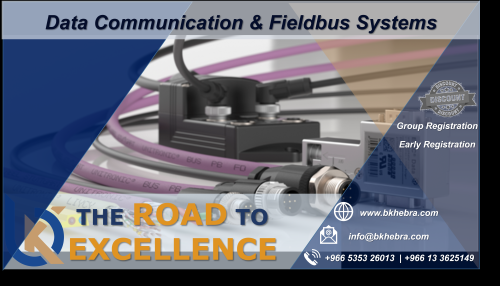| Training Code | Date | Duration | Venue | Fees |
|---|---|---|---|---|
| Keep following, we are updating our training schedules. | ||||

Over the last couple of years, instrumentation has come on in leaps and bounds. It is just as important to note the data communication has not been left behind, and has rightfully kept pace with all the requirements of the modern plant. There is an increased tendency towards better data communication (especially in the industrial environment), and the aim of this BKhebra Data Communication & Fieldbus System training seminar is to take all the mysticism out of the data communication systems, in existing (and future) networks.
In this 3-days B. Khebra’s Data Communication & Fieldbus System training seminar covers all aspects of data communication, starting from an overview perspective and then delves individually into all the major aspects that are considered important to current users. Special attention is also given to the hybridized systems (i.e. HART) as well as the all-important fieldbus options that currently play such an important role in communicating with field devices. This training seminar is presented in a manner which is easy to understand and grasp, even for novices and those new to the field of data communication and fieldbus, as well as those that wish to improve / refresh their current knowledge
This B. Khebra’s training program provides both strategic and practical insights into:
Upon successful completion of this course, the delegates will be able to:
On successful completion of this training course, BK’s Certificate with eligible Continuing Professional Education credits (CPE), will be awarded to the delegates , one CPE credit is granted per 50 minutes of attendance.